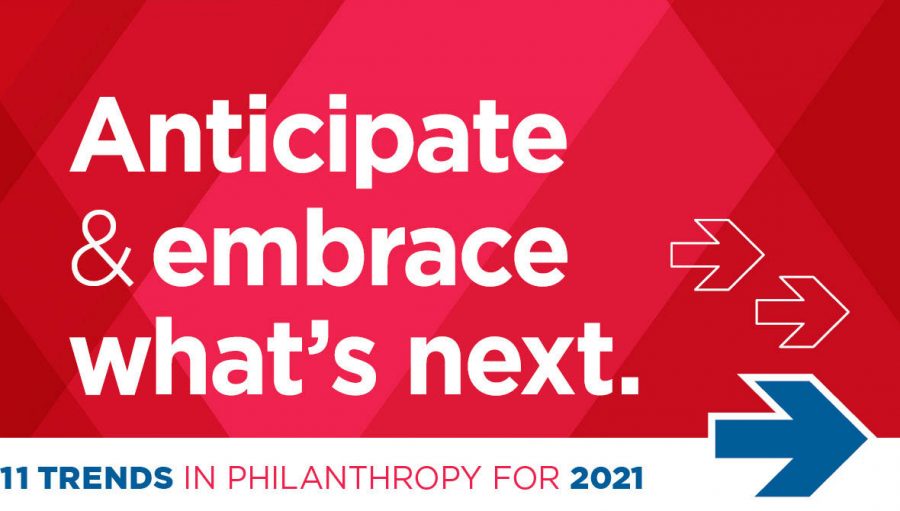Johnson Center identifies trends, opportunities in philanthropy
Feb 8, 2021
The Dorothy A. Johnson Center for Philanthropy at Grand Valley State University has released its fifth annual “11 Trends in Philanthropy” report, highlighting trends and new opportunities in philanthropic sectors that have been affected by the widespread tension and world-changing events of the past year.
The 2020 “Trends” report, written by several experts and leaders from the Johnson Center, delves deep into philanthropic aspects of many commonly-discussed nationwide issues from the last year such as widespread wealth inequality, social injustice, and systemic racism. The report also covers newly-emerging trends such as the importance of data in this digital age and the up-and-coming arrival of the next generation of young philanthropists.
While these trends are far-reaching, broad topics of analysis, they will impact the lives of GVSU students through resources offered by the University. Executive Director Teri Behrens, who co-authored two articles in this year’s report, shared her thoughts on how philanthropy is working to help the people who need it most.
“The word ‘philanthropy’ means love of humankind, and philanthropy is involved in all of our society’s ‘big questions’ that impact the wellbeing of people,” Behrens said, “Today, of course, much of philanthropy is focused on the urgent needs we’re facing amidst the COVID pandemic – providing support for PPE, testing, food, access to childcare and broadband access.”
Behrens also discussed how the Johnson Center’s work ties back to the lives of students.
“We connect with several teams across the University, such as the Office of Inclusion & Equity, to call on their expertise as thought leaders and instructors in our work with communities,” Behrens said. “All of our educational programs include a focus on equity, and GVSU faculty and students can participate in most of our programs at a significantly reduced cost.”
W.K. Kellogg Community Philanthropy Chair Michael Layton lent his writing and philanthropic expertise to this year’s report. One article by Layton and Behrens, titled ‘Dynamic and Disruptive Forces are Increasingly at Work’ examines how diversity, equity and inclusion are growing in the philanthropic world. The Johnson Center is working to make sure diverse viewpoints and experiences are central to its operation.
“In our strategic plan, we identify reinforcing a culture where everyone feels valued in the Johnson Center as critical to our sustainability,” Layton said, “Under the leadership of our Distinguished Scholar in Residence for Diversity, Equity, and Inclusion, Dr. Juan Olivarez, we have established a committee to track our progress in living up to those ideals and facilitating an ongoing learning process. We have established these three values at the core of what we do.”
The crises, movements and events of the past year heavily influenced which topics were selected for this year’s “Trends” report. Many of the trends highlighted in the report were accelerated or brought to light specifically by events like the COVID-19 pandemic, various social justice movements, and the continuing focus on systemic racism by activists all over the country and the world.
“One of the cruel ironies of the US economy during the pandemic is the combination of soaring unemployment and hunger, and a soaring stock market and phenomenal growth in the personal wealth of some of America’s wealthiest individuals,” Layton said. “That inequality helped fuel calls for reform, and we connect the dots between those phenomena in the report.”
























